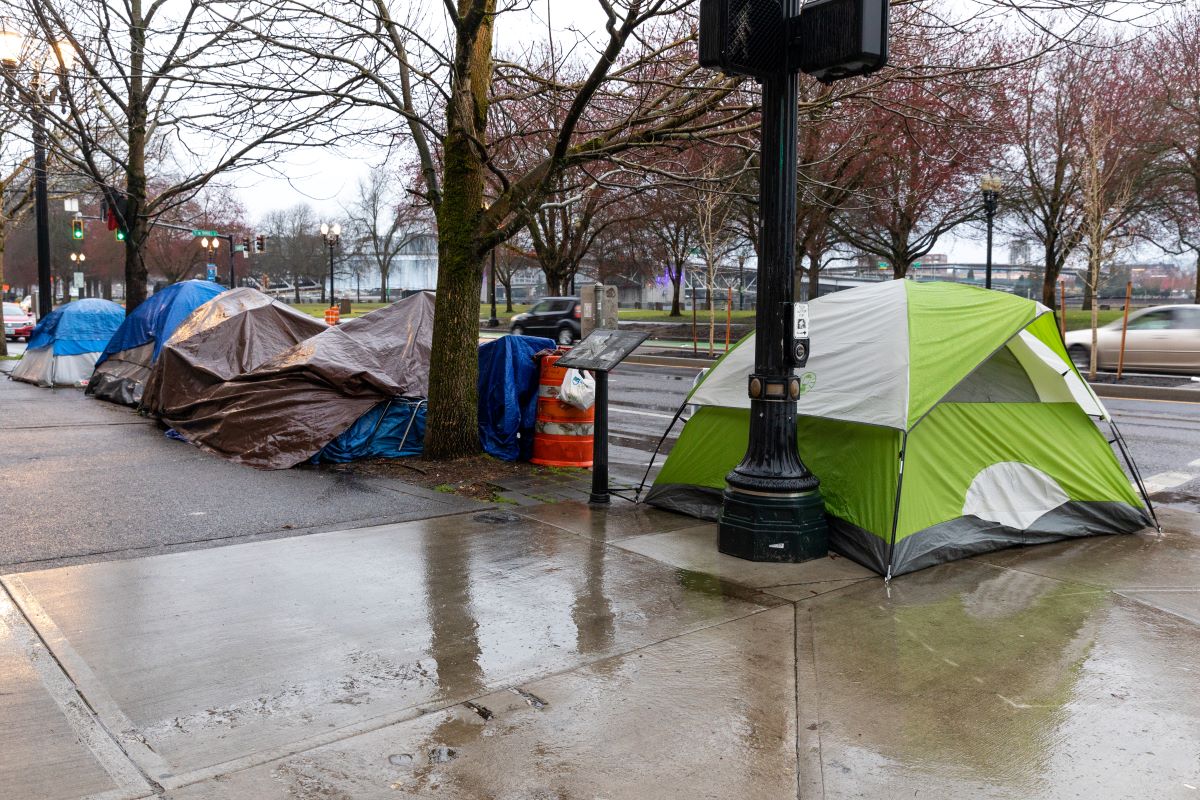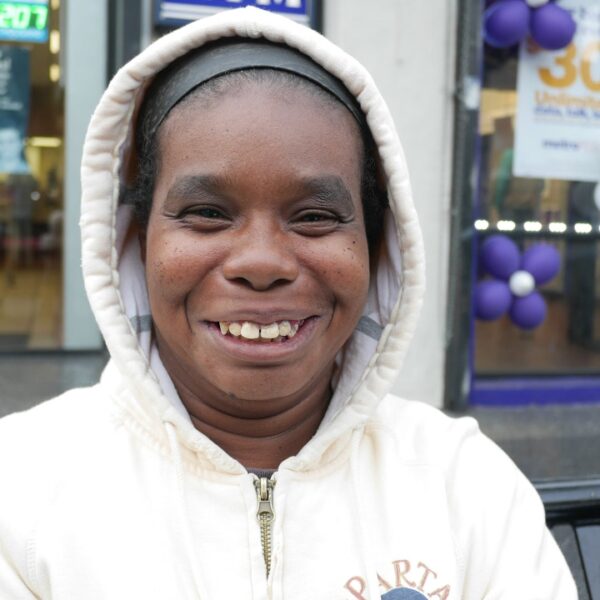Two Things Can Be True at the Same Time.
Fall has arrived in Philadelphia. It offers a brisk, colorful greeting with dark orange hues, gleaming, crisp apples, and the smell of cardamom wafting over Walnut Street. Yet, even as the warm sun casts shadows over City Hall, that subtle hint of winter is in the air.
Looming negative-degree temperatures are a chilling thought for the millions of people who will be forced into homelessness in the United States this year alone. Among them are addicts and stone sober shift workers, teachers and disabled veterans, single mothers, struggling fathers, and six-year-old children, teddy bears, uniforms, and blankets filled with memories.
They gather with one common need – housing, but they will be offered something different – treatment. This ineffective approach has failed us time and again. When will we wake up to the truth?
Homelessness Is a Societal Ill that Cannot be Treated with Anything Other Than Housing
“Don’t push me,” screams a man who uses a wheelchair with a fistful of opiates out in the open at the Kensington and Alleghany train station.
The sight of the station borders on apocalyptic. Trash is strewn in piles by the staircase leading up to the train. Haunted, drug-addicted eyes plead for help. Pipes and bottles and Styrofoam cups wade over the pavement like a sea.
All you can see is this ocean of concrete covered in sadness and hazardous waste. All you can do is not weep when you see it, though the sight is enough to bring you to your knees.
In a nearby high-rise apartment, a single mother working two full-time minimum-wage jobs cannot make rent. Eviction notices drape over suburban doorways. Tents and makeshift shelters line city streets. Tech workers are being laid off in droves. Truck drivers fight to stay afloat.
Mental illness is plaguing society. Tens of millions of people are getting high. But guess what else is getting high? The car prices and mortgages, rental rates and groceries, gas and clothing, and medicine – everything except the national median wage.
We acknowledge the fact that addiction exists in both housed and unhoused communities alike. And because the drug issue is so visible and so persistent, it has become a convenient scapegoat, a talking point for crafty politicians who wish to do the bare minimum in reducing homelessness.
But even if we cured addiction and mental health conditions tomorrow, we would still be short more than 7 million affordable homes. Let’s talk about why that matters.
Drug Addiction and Mental Illness are NOT Leading Causes of Homelessness
Mental health and sobriety are important aspects of a thriving society. Aspiring to solve either of these problems is an admirable goal. It just isn’t a preliminary requisite for solving the homeless crisis because homelessness is a housing problem that can exist alone or in congruence with other societal ills. As such, this article seeks to illustrate two different but related points:
- Drug addiction is not a leading cause of the current homeless crisis
- Solving drug addiction would not end or reduce homelessness — under our current broken system. — it might even create a bigger homeless problem
Here’s what the data suggests.
Housed People and Homeless People Exhibit Drug Addiction and Mental Illness at Comparable Rates
If someone said more than one in five homeless people suffered from mental illness, this remark would be supported by droves of NIMBYs screaming for all unhoused people to be involuntarily committed. If someone said that one in three homeless people had either a substance use disorder or a mental illness in the past year, there would be a resounding affirmative cry from the public as if all their coveted stereotypes had been confirmed.
In reality, though, these statistics are from the housed community.
That’s right. According to the Substance Abuse and Mental Health Services Administration, an astounding one in three Americans suffers from either addiction or mental illness, and nearly one in four young people suffer both at the same time, exhibiting co-occurring disorders.
Nobody ever suggests that drug addiction and mental illness are the root causes of housing stability because that statement would be ridiculous. However, given the current socioeconomic climate, suggesting that these issues cause homelessness is equally ridiculous.
Consider this. Rates of homelessness are highest in cities where housing is more expensive, not cities with the highest addiction death rates or even cities where mental illness is most pronounced. If drug addiction and mental illness were truly causing the homeless crisis, the data would reflect that. It does not.
Even if We Cured Addiction and Mental Illness, We Would Still be Short 7 million + Affordable Homes
Perhaps the bigger fallacy in assuming treatment takes people out of homelessness is the fact that if it were true, they would still have nowhere to go. Livable wages are a thing of the past. Deeply affordable housing is fading out of existence.
As it stands, we are short 7 million + affordable homes. If anything, the stress of not being able to afford to live in America is causing drug addiction and mental health issues. It is foolish to try and argue this the other way around.
Talk To Your Representatives About Making Housing a Human Right
Financial analysts project that prices will not be coming back down anytime soon. Under our current broken system, we can only cure homelessness with permanent affordable housing for all. Talk to your representatives about their plans to achieve such a goal.













